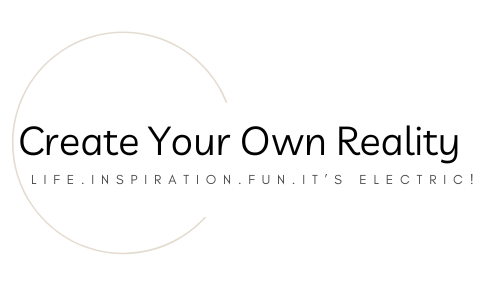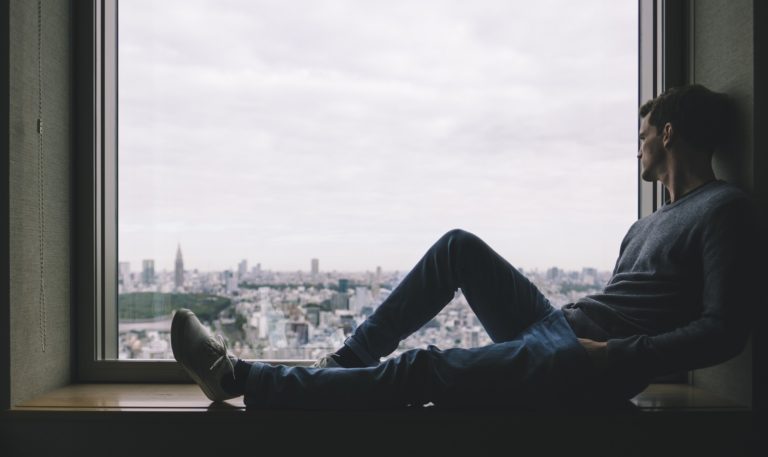7 Frustrating Myths About Introverts

If you’re an introvert like me, you’ve probably dealt with your fair share of frustrating and irritating myths about introverts.
It’s one of the biggest downsides of living in an extroverted world. When the world isn’t built for you to thrive in, you have to make modifications to be happy.
These modifications can come off as “unconventional” to the extroverted majority and can result in some very inaccurate perceptions.
These inaccuracies often result from a lack of understanding, but they can still make introverts feel like there’s something wrong with them.
As a result, I think it’s important for introverts to acknowledge some of these myths about introverts and dispel them, even if it’s just amongst ourselves.
This will help us to continue making the modifications we need and forging ahead in a way that works best for us, even if most of society suggests we should behave otherwise.
Here are my top seven frustrating myths about introverts.
Introverts = Shy
Because introverts can be quiet–especially in busy social situations–they’re often labeled as “shy.” And while introverts can be shy, being an introvert doesn’t automatically mean that you’re shy.
I find this to be one of the most irritating myths about introverts.
Shyness is rooted in fear of social judgment. Introversion is marked by gaining energy from being alone and having a deep inner world. (You can read more about what it means to be an introvert here).
While introverts often feel less of a need to be social and insert themselves into loud, crowded, or social situations, it’s not done out of fear. It’s done by choice, and often out of an instinctive pull to use their energy wisely.
Because introverts gain energy from being alone and lose energy from socializing, we’ve learned to be very purposeful about where our energy goes.
None of this means we’re shy.
Introverts are antisocial
MentalHealth.gov defines antisocial personality disorder as ” a mental health condition in which a person has a long-term pattern of manipulating, exploiting, or violating the rights of others. This behavior is often criminal.”
This is not part of what it means to be an introvert. We’re also not asocial, which is defined as someone who avoids social interaction.
Again, a person can be both an introvert and antisocial or asocial, but just because you’re an introvert, doesn’t mean you’re either of these things.
Introverts are selectively social. This is (again) because socializing really does take a fair amount of energy from us.
We’re constantly weighing enjoyment vs energy loss of any invitation or social opportunity we receive.
This is important for our health. If we aren’t selective about our socializing, we’ll end up useless with an introvert hangover.
Introverts are socially awkward
Just because introverts don’t socialize as often as extroverts doesn’t mean they’re awkward when they do.
Introverts are just as capable as being comfortable around people as an extrovert. Sure, sometimes extroverts are better because they’ve had more practice, but introverts aren’t socially awkward by default.
In fact, many introverts are great with people because they’re naturally inclined to be deep thinkers, which can make it easier to understand another point of view.
If anything, I’ve found the believe that introverts are socially awkward is what makes introverts socially awkward.
The more I’ve come to understand my introversion and embrace it, the better with people I seem to get.
I think this is largely because I’ve been able to drop the social concept of how I “should” behave and just be me, which makes everyone more comfortable.

Introverts aren’t fun
Because introverts often enjoy staying home, or frequenting more low-key, less stimulating environments (like coffee shops, museums, movie theaters, etc) they can often be seen as not being fun.
This is so not the case. Our definition of fun is just different that most of society.
The world is made up of mostly extroverts, and extroverts gain energy (and thus, have fun) in social situations, bars, parties, clubs, and similar busy, high energy atmospheres. Because of this, these places have grown to be the gold standard of “fun.”
But honestly, none of that is fun to me–at least, not on a large scale. For an introvert, fun is a night in alone, or spending time in or out in any mildly stimulating environment with a small group of friends, family members, or a significant other.
Fun is deep conversations and shared interests.
And fun can be a party of any kind if it’s rare and there’s recovery time built in.
The reality is, there’s a place for all types of fun. Introverts often enjoy extroverted fun in the right doses and extroverts often enjoy introverted fun in the right situation.
And it’s okay if we each have a stronger preference for one over the other. We should all be able to do our own thing, regardless of what anyone else’s definition of fun and happiness are.
Introverts must be lonely
For a lot of extroverts, being home alone (or in a room alone) might be lonely, but this is often where introverts are their best selves.
During this time, we get to read, relax, create, recharge, and feed our rich inner worlds in any way we see fit. We don’t have people or situations competing for our time or energy. We get to just BE.
That’s not to say that introverts are never lonely, but personally, I’ve found I’m much more predisposed to loneliness when I’m surrounded by people at a party (or some other event) I don’t want to be at.
In those moments, I feel like I’m the only person who doesn’t want to be there and is counting down until I can go home. Being alone in a feeling like that is often when I feel the loneliest and being physically alone (or sometimes being with a single person who gets it) is often the cure.
Introversion is something to overcome
Growing up, I often heard introversion discussed as a bad thing and as something to “get passed” and “overcome.” But that can actually be pretty damaging. (I’ll once again point you to the introvert hangover post.)
Introverts are literally wired differently than extroverts. As a result, our needs are different than extroverts. We’re our best selves by honoring our introverted nature, not trying to get passed it.
Are there some ways where being an introvert makes things harder for us? Yes!
But it’s not our introversion we need to overcome. It’s societies lack of understanding and extroverted expectations.
We need to learn how to adapt our world to fit this personality trait, not the other way around.
Introverts just need to get out more
No. We really don’t.
Of course, it’s not good for anyone to stay in or go out too much, but if you find a good balance and you’re able to both see your friends and family and get the recharge time you need to enjoy it all, you absolutely do not need to get out more.
Introversion and Extroversion is on a scale. Some introverts are more introverted than others.
If you need to be in more to enjoy going out and still have energy for the other things that matter to you than that’s what you need to do. Just because someone else wants you out more or thinks you need to get out more doesn’t mean you do.
Learn yourself. Learn your energy levels. And understand that what you need really is going to be unique to you. It’s okay to feel justified in making and sticking to your choice.
It really doesn’t matter what anyone else has to say about it.
Looking for more in-depth tips on how to manage your introverted life?
If you want to dig a little deeper into this topic, check out the Introvert Life Guide!
This guide was designed to help you build the introvert life of your dreams. And it’s full of plenty of tips and tricks to help you manage your introvert social life and big social events. Plus more on navigating the myths about introverts others hold.
It will also help you embrace your introverted nature and build a life to help you thrive!

For more introvert life tips, check out the other introvert posts!
Sound off: What are some frustrating myths about introverts you’ve come across? Tell us about it in the comments!







